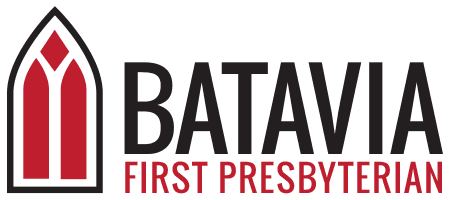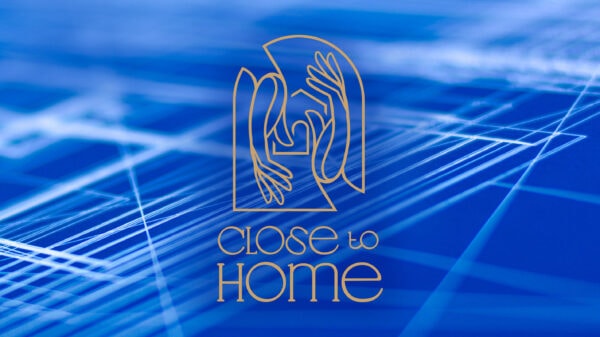Weekly Bible Devotional
“You Were Made for a Miracle: Ready for a Miracle?”
April 5, 2020
Scripture for Sunday: Mark 11:1-11
When they were approaching Jerusalem, at Bethphage and Bethany, near the Mount of Olives, he sent two of his disciples 2 and said to them, “Go into the village ahead of you, and immediately as you enter it, you will find tied there a colt that has never been ridden; untie it and bring it. 3 If anyone says to you, ‘Why are you doing this?’ just say this, ‘The Lord needs it and will send it back here immediately.'” 4 They went away and found a colt tied near a door, outside in the street. As they were untying it,5 some of the bystanders said to them, “What are you doing, untying the colt?” 6 They told them what Jesus had said; and they allowed them to take it. 7 Then they brought the colt to Jesus and threw their cloaks on it; and he sat on it. 8 Many people spread their cloaks on the road, and others spread leafy branches that they had cut in the fields. 9 Then those who went ahead and those who followed were shouting,
“Hosanna!
Blessed is the one who comes in the name of the Lord!
10 Blessed is the coming kingdom of our ancestor David!
Hosanna in the highest heaven!”
11 Then he entered Jerusalem and went into the temple; and when he had looked around at everything, as it was already late, he went out to Bethany with the twelve.
Notes on the Text:
This Sunday is the celebration of Palm Sunday when we remember Jesus’ entry into Jerusalem where he had a parade. Cities are an important part of our modern way of life. They were also important in ancient times as centers for commerce, politics, and religion. Jesus spent most of his ministry outside of Jerusalem and yet the events of the last week of his life which took place in Jerusalem became so central to the telling of his story.
Jerusalem was elevated to an important status when King David brought the Ark of the Covenant to it. He made Jerusalem a symbol of political and religious power. Throughout the centuries, Jerusalem has witnessed so many political and military struggles. It is supposed to be one of the holiest cities in the world and yet it is one of the most conflicted. The literal meaning of the name in Hebrew is “to see peace” and the Arabic name for Jerusalem “Al-Quds” means “holy.” But the ancient and current realities of the city are far from both meanings. And I think that is precisely why it could be a great metaphor for our lives today and the complexity of living with the promise of wholeness and the struggles of brokenness. Unlike Jesus and the disciples who entered Jerusalem by choice, we are forced to be in this metaphorical kind of Jerusalem. Yet, in the midst of brokenness and in the heart of Jerusalem (whether we enter it by choice or by force) lies the promise of our wholeness. Living the life God calls us to live is not about living the “perfect” life but is about being willing to embrace all the aspects of our lives, especially when life is painful or scary.
This is the example Jesus left us through his entry into Jerusalem. He showed us a path through the brokenness of life which does not shy away from the pain. It instead embraces it and allows God to heal it. We often think of his entry into Jerusalem as a triumphal event, as that of a king. But it was a lot more complex than that. Jesus entered a city that had witnessed many parades of military leaders and rulers from King David to Pilate. And most of these parades did not end up fulfilling God’s vision for the world. The festivities and the hopes of the people for renewal were high with each one, but each of these leaders had not been able to fulfill the promise and hope of peace and holiness that is at the heart of the vision for the city. And all of that I believe is because these leaders relied on the powers of armies and human violence to bring peace. They believed that human might and strength were the means to a lasting peace in the world.
Jesus was different. There are several elements in this very familiar story that were intentionally radical in order to wake people up to a new narrative of faith and new possibilities for peace. According to Mark, Jesus came into the temple, looked around, and then simply left for Bethany. The expectation of the people was for him to do something triumphant and dramatic right away. It is important for us to remember that they were living under the oppressive rule of the Roman Empire and were waiting for someone to save them. When they shouted “Hosanna,” they were looking for salvation from Roman oppression. That is what “Hosanna” literally means, “save us.” The significance in the palm branches (or the branches from the field) and “Hosannas” are found in Jewish history about one hundred fifty years earlier. A hero, by the name of Simon Maccabaeus had delivered Jerusalem from the Seleucids (Greek Empire) through military force. On that occasion, which is known as the Second Maccabean Revolt, a great celebration was held with praise, palm branches, and musical instruments (1 Mc. 13:51). So, the palms became a symbol of the Jewish desire for deliverance. Jesus was supposed to be a military leader that would deal with the fears of the people, the corruption of the religious leaders and the oppression of the Roman Empire. He was supposed to be the Messiah, which meant in their day, a military leader that would lead a violent revolt against the oppressors of his people.
But Jesus’ entry was different because he came on a lowly animal and not a steed. The donkey was a symbol of powerlessness and the peasantry. He was welcomed by the peasants, those who were oppressed by the powers. Jesus rode into Jerusalem on a donkey instead of a horse. This was a very intentional choice on his part. In fact, the author of the Gospel of Mark spent several verses on the details of getting the donkey and how Jesus sent for it specifically. This was all to say that Jesus’ parade was not just another religious celebration. His parade was calling for a change in the social, spiritual, and social consciousness of the people. He showed them that brokenness is the way to wholeness and peace.
For Reflection:
Miracles happen when we rely on God’s flow of love in us instead of seeking to control others or our circumstances. Accepting our vulnerability and dependence on God is what makes us truly strong and able to be the miracles God calls us to be. Yet, everything in us seems to resist being vulnerable like Jesus was. We have a hard time opening up about our pain. We hide our fears and imperfections, if not suppress them completely. We strive to succeed and feel so humiliated when we fail. We judge others for their failures in order to make ourselves feel superior. We basically work against our own wholeness, even on the larger scales of life as groups and nations. Yet, courage is about embracing our own Jerusalems with hearts open to love and to healing.
We need to embrace the vulnerability which Jesus was modeling for his disciples and for all of us as we seek to live the life God calls us to live, especially during this difficult time in our human history. This is a moment that is requiring so much courage from each of us to do the right thing and to look beyond our selfish needs. It is a moment that is requiring us to embrace our vulnerability and to live in humility and trust. Yet, this experience also has the potential for a miracle of healing and wholeness for our world if we learn to trust each other and to live in ways that promote cooperation instead of competition and violence.
This coming week is Holy Week when we remember Jesus’ last week of life and his final journey to the cross. I would like to invite you to make it a sacred pilgrimage. Pay attention to where you see or feel nudged by the Holy Spirit. Listen, pause, and take time to open up to Jesus’ vision for a world of love, cooperation, and peace. He believed it was possible. In fact, he bet his life on it! Will you join him on this sacred journey?
Prayer by Joyce Rupp:
Courageous Christ,
on that day when you rode upon the donkey,
processing amid the cheering palm-wavers,
surely your courage struggled to remain intact.
I will face my entrance into unavoidable suffering
and draw strength from your ability to accept it. Amen.


